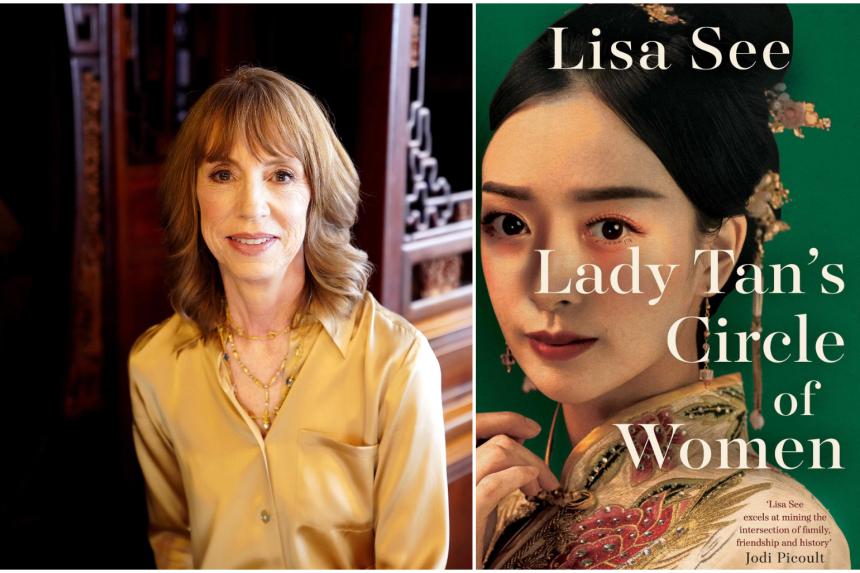Lady Tan’s Circle Of Women
By Lisa See
Historical/Scribner/Paperback/352 pages/$29.89/Amazon SG (amzn.to/40ZcsUU)
4 stars
“A woman who helps others helps herself.”
The proverb quoted by a female boat captain rings true for the entirety of Lady Tan’s Circle Of Women. Set from 1469 to 1511 in the Ming Dynasty, the novel follows Tan Yunxian from childhood to her 50th birthday as she learns medicine from her grandmother and uses her skills to help women.
Centring on the importance of female friendship, Yunxian is told early on by her father’s concubine, Miss Zhao: “It’s important for women – and girls – to find friendship and steadfastness where they can. I can be those things for you if you’ll let me.”
American author Lisa See, known for her focus on Asian historical fiction, continues to honour her Chinese heritage – her great-grandfather is Chinese – through this novel.
In the acknowledgements, she explains how she came across Lady Tan, a female physician in 15th-century China, while stuck at home during the Covid-19 pandemic. Inspired by the elite woman who became a doctor solely for women, See knew almost immediately what her next book would be about.
Moving to her grandparents’ estate soon after the death of her mother, Yunxian develops an interest in medicine while simultaneously beginning a lifelong friendship with Shi Meiling, the daughter of a midwife. Their class difference is a point of contention throughout various stages of their lives, as midwives then were seen as unclean for touching women’s blood and aiding in autopsies on female victims.
Forbidden by her mother-in-law to practise medicine or see Meiling, Yunxian tells herself: “I can survive most of these blows, but I will not give up who and what I am – even if that means hiding my actions while practising medicine in secret.”
The novel takes its time focusing on different parts of Yunxian’s life, skipping years and, sometimes, decades to feature the key moments that shaped her as a woman and doctor. From sneaking out to treat sick working women to aiding in the delivery of Hongzhi Emperor’s first son, the highly detailed snapshots of her life can occasionally cause the story to drag as the action is limited to travelling to and treating patients.
A frustration with Yunxian that could have been further explored in this fictionalised retelling of her life is her view of working women. Despite her close friendship with Meiling, Yunxian makes little effort to consider the midwife’s needs and status, frequently reacting selfishly when Meiling elevates her own position.
Though Miss Zhao calls out this immature and thoughtless behaviour, there is little visible change from Yunxian moving forward.
However, it does not detract from the major strides this historical figure’s medical work has made for women in China. Her book Miscellaneous Records Of A Female Doctor (1511) remains one of the earliest known writings by a female doctor, allowing other women to learn from her experiences.
She says in the novel: “I want to write about those problems that stem from solely being a woman.”
If you like this, read: Someone Knows My Name by Lawrence Hill (HarperCollins, 2007, $30.18, Amazon SG, amzn.to/46wODVy). Aminata Diallo has been kidnapped from her West African village and enslaved in South Carolina. Vowing to return home, she begins a journey that leads her to be a part of history.

